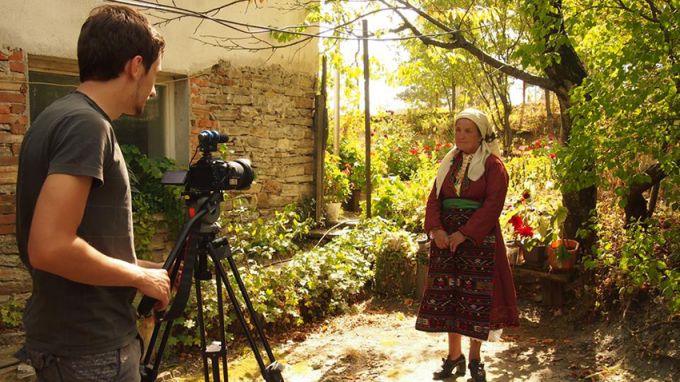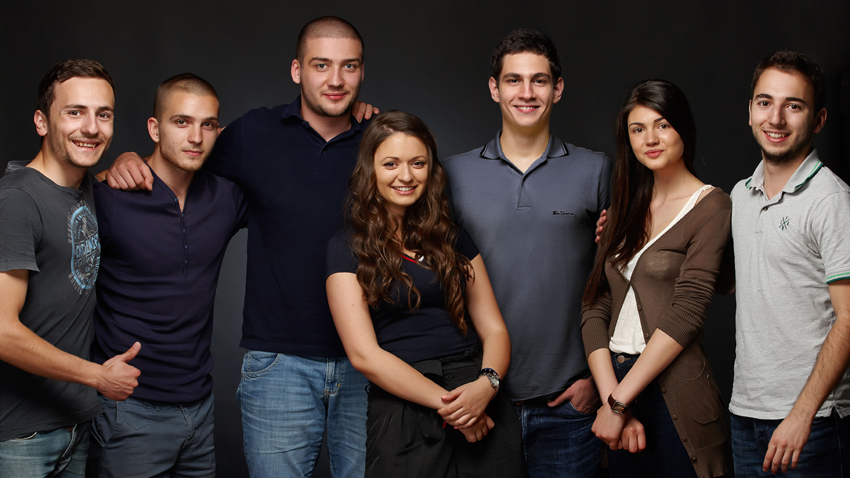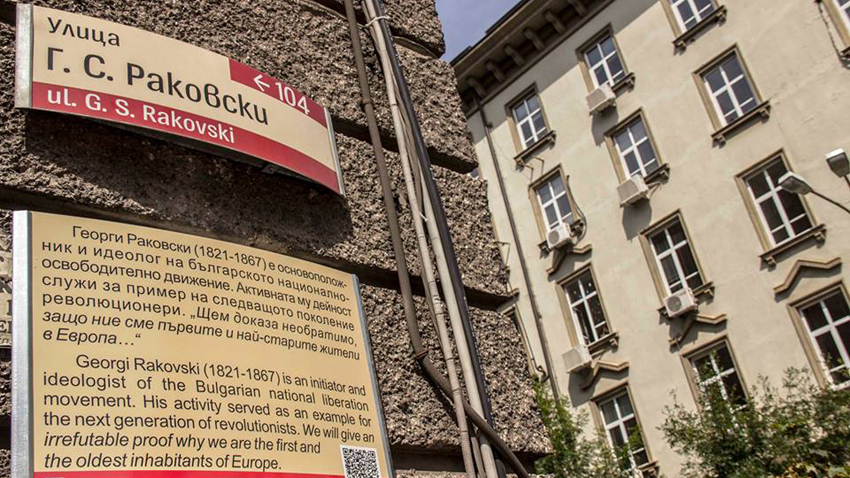
They are young and full of endless energy and optimism. They are linked by friendship, patriotism, the interest towards our ancient roots, as well as their will to kindle Bulgarian spirit. Sixty thousand kilometers on 4 wheels, over 50 lessons in national pride across 40 cities and towns, 30 screenings of their own documentary, 50 villages visited with stories of locals shot, more than 100 explanatory tables at Sofia streets, a book released, along with over 100 articles and 40 videos… These are the numbers in one year of these young enthusiasts’ life: Mario, Ivan, Ivomir, Martin, Ivo, Elena and Denitsa. They have created www.bulgarianhistory.org which is now famous among thousands of Bulgarians in this country and abroad. It all started with Facebook, just like many other initiatives. A bit more than 3 years ago Mario and Ivan – then classmates at Sofia’s French High School decided to share across Facebook their interest towards our past. So, unexpectedly for them both things gradually expanded to a website and the establishment of the Bulgarian History Association. “We see history as a hobby, pleasure and a reason to be proud of our nationality,” Denitsa says. The idea of the young people is to represent the unknown pages of our history in an intriguing and accessible manner.

“Short documentaries can be found on our website and also videos,” Denitsa explains. “We have an Archives Talk section, where we publish speeches, soldiers’ letters, documents and anything that might be interesting and cannot be found in textbooks. Maybe this is the main reason why people show interest in the website content and in our other activities.”
The articles reveal curious facts, recall forgotten myths and legends, get us acquainted with interesting people who have somehow left a trace in our history… There is even a section named Bulgarian Type of Socialism. Last spring the young people released their first book: Bulgarian History in 100 Persons and presented not only Bulgarian figures, but also foreigners who had contributed to this country’s development. It was the start of a trilogy. Swiss man Louis-Emil Eyer who spent more than two decades in this country and who led Bulgarian volunteers on the route of the national unification wars, inspired the enthusiasts to shoot a documentary. It was named The Swiss Guy with Bulgarian Heart. The movie has toured around most major cities and has been really successful.
“The idea occurred due to the fact that this person had remained unknown, though he had contributed a lot to the development of Bulgarian society after the Liberation,” Ivo says. “He is a foreigner who did take the Bulgarian cause to his heart and we were really impressed by that.”
The Let’s Tour Bulgarian Schools is another project that the team has devoted itself to. They’ve had over 50 lessons in national pride across 40 cities and towns till now. Their idea to bring Sofia streets to life, placing tables with short info in Bulgarian and English on a certain person or event has been supported by Sofia Municipality. Their hopes are that the project will be transferred to other cities and towns. Legends Back to Life – that is the name of yet another interesting initiative of the team. Locals and researchers tell in short videos legends and myths of miraculous icons, healing springs, brave maidens and chieftains… “In this way we want to preserve stories and legends of remote spots that might soon be lost with all this depopulation,” Ivo says in conclusion.

English version: Zhivko Stanchev
Photos: private galleryThe Republic of North Macedonia is in seven days of mourning. The town of Kočani, where a fire in a disco club took the lives of at least 59 people – mostly young people and children, aged 14 to 25 – is shrouded in silence today. "The..
Ireland's blessings come in many forms - funny, formal, heartfelt, and wise. On St. Patrick's Day, I'm sharing here my favourite Irish blessing. "May the road rise to meet you, may the wind always blow at your back, may the sun shine warm on your..
The Little Miss and Mister Galaxy 2025 contest kicks off in Bansko, bringing together talented children from 4 to 17 years old. Contestants from countries including Bulgaria, Brazil, Macedonia and Georgia will showcase their skills in interviews,..

+359 2 9336 661
